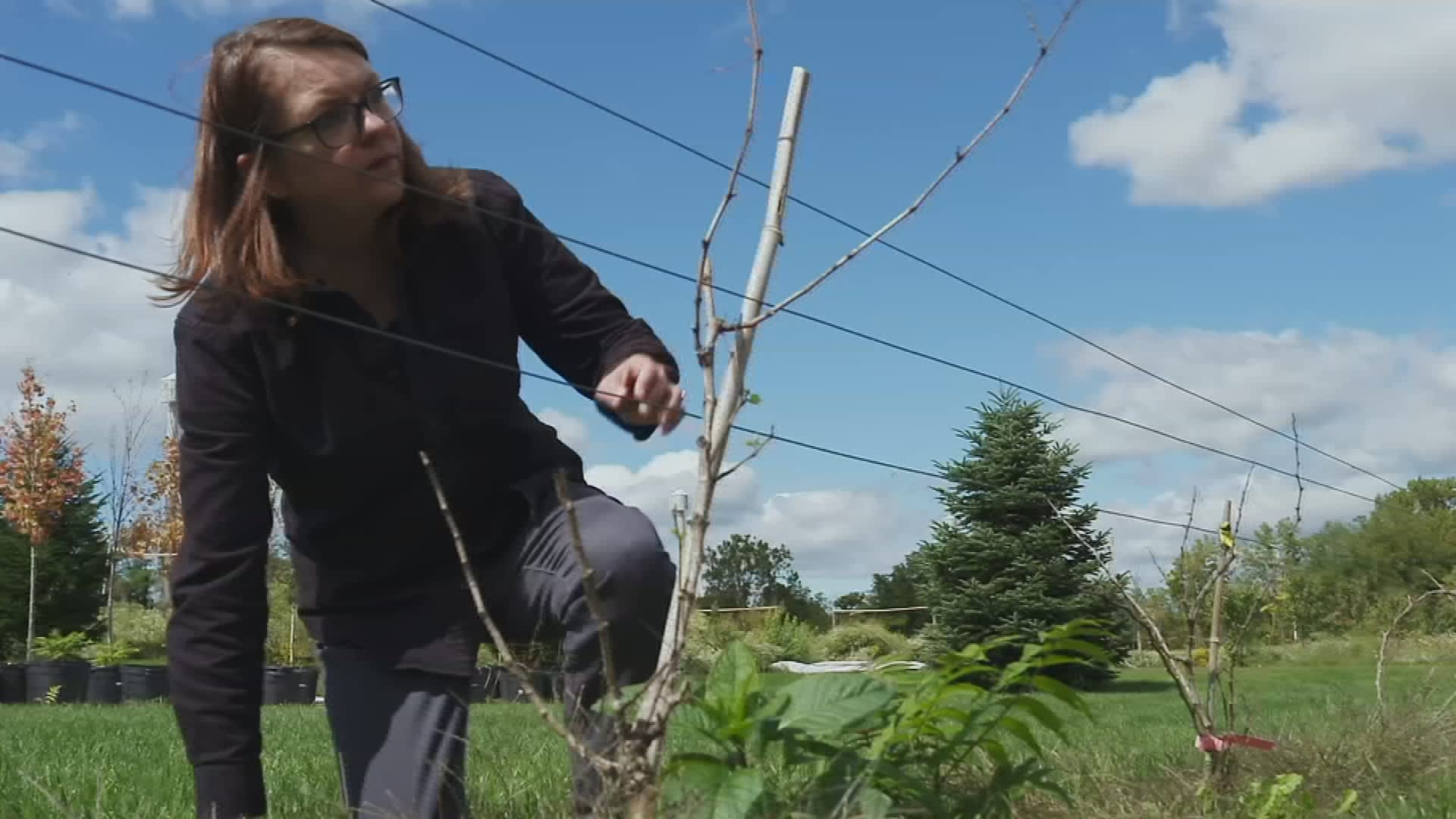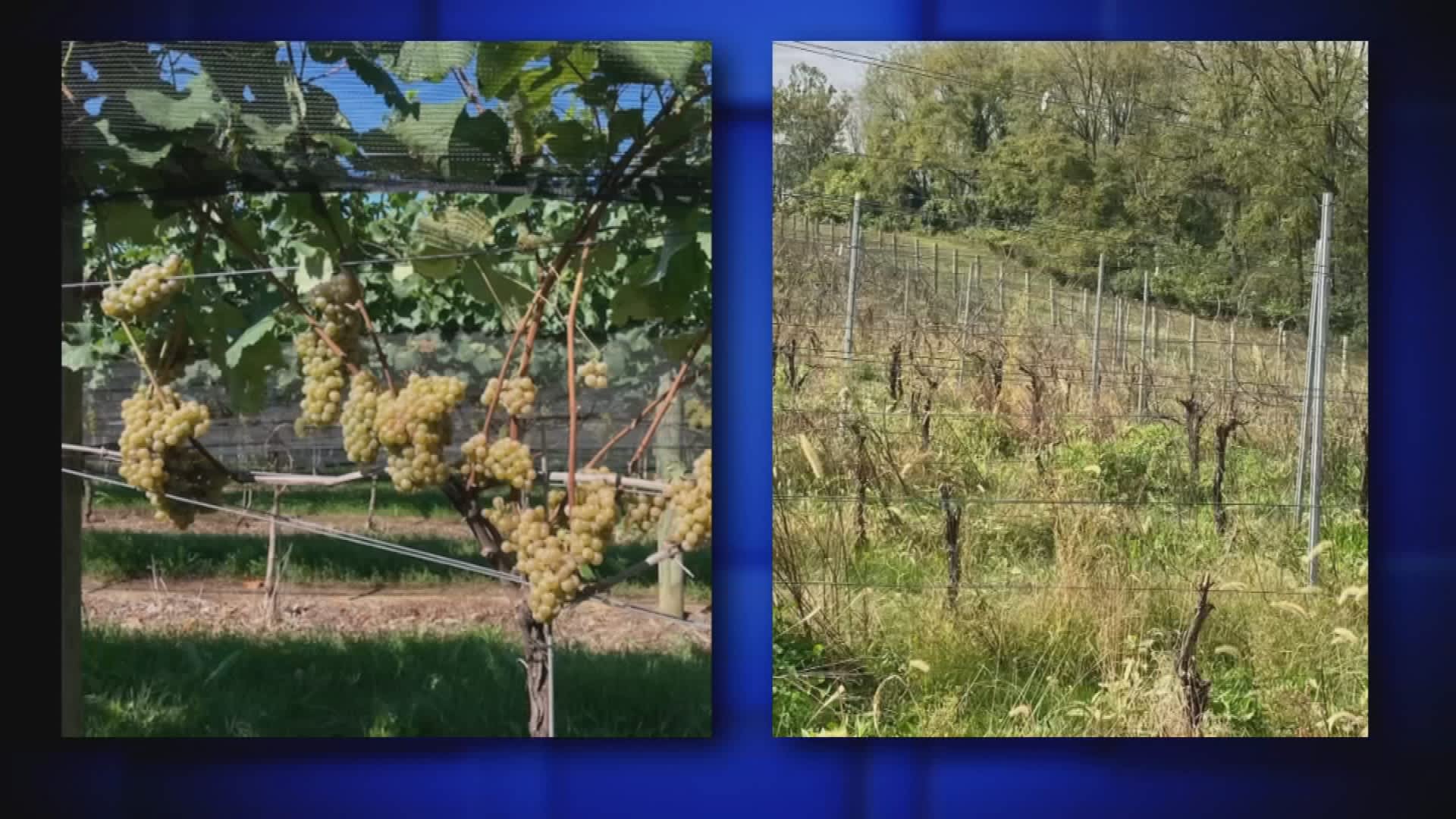
- Fiore Winery in Maryland is among those experiencing the insect's destructive effects.
- The winery's owner says he has already lost about 50% of production this year because of the lanternflies.
- Researchers say they have made their way across the country by clinging to the wheel wells of cars and hopping onto trains or planes, and laying their eggs along the way.
WATCH ANYTIME FOR FREE
>Stream NBC10 Boston news for free, 24/7, wherever you are. |
It's 2 p.m. in Pylesville, Maryland, and Mike Fiore is patrolling the vineyards he's owned since 1975 for an insect that recently began wreaking havoc on his property – the invasive spotted lanternfly.
"If we don't destroy them, [they'll] destroy us," said Fiore, a 78-year-old immigrant from Italy whose family has been in the wine business for more than 300 years. "This is the most destructive insect."
Get updates on what's happening in Boston to your inbox. Sign up for our >News Headlines newsletter.
According to the U.S. Department of Agriculture, the vampire-like planthopper feeds on a wide range of ornamental, fruit and woody trees, including grapevines. Fiore Winery is among those experiencing the insect's destructive effects, having already lost about 50% of its production this year because of the lanternflies, according to its owner.
"We've never seen anything like this," Fiore said.
The spotted lanternfly is native to Asia, and was first detected in Pennsylvania in 2014. It has since spread across 14 states: Connecticut, Delaware, Indiana, Maryland, Massachusetts, Michigan, New Jersey, New York, North Carolina, Ohio, Pennsylvania, Rhode Island, Virginia, and West Virginia.
Money Report
Exactly how many of the insects are wreaking havoc on crops across the country remains unknown. But according to Julie Urban, an associate research professor of entomology at Penn State, it's likely in the billions.
"There's potential for the lanternfly to be right up there among the most serious things that could impact a vineyard," Urban told CNBC. "The true story is going to depend on how far it spreads."
Spotted lanternflies aren't great fliers, but are great hitchhikers. Researchers say they have made their way around the United States by clinging to the wheel wells of cars and hopping onto trains or planes, and laying their eggs along the way.
In Kempton, Pennsylvania, Larry Shrawder owns one of the first vineyards hit hard by the insects. Years later, he's still recovering.
"They cover the entire trunk and you get to the point where you can't even see the trunk anymore," the Stony Run Winery owner told CNBC. "It's just side by side lanternflies all sucking the juice out of your plant."
When it comes to grapevines, experts say the insects target the vine rather than the grape. And Shrawder said the insects continually bleed the plant of nutrients.

"It eliminates the plant's ability to ripen fruit and to store carbohydrates over winter and most of the death occurs the following year when the plant doesn't wake up in the spring," he said.
Shrawder said it's been four years since spotted lanternflies started feasting on his vines.
"For quite a while, we thought we were just going to be out of business," he said. "The 15% of the vineyard we lost translates to about 30,000 bottles per year and about $525,000 worth of product a year that was taken out by the flies."
To try and keep the insects off, Shrawder wrapped his vines in special white nets. That didn't work, but he said spraying insecticide on the trees surrounding the vineyard did help.
"It's not successful completely – but we certainly reduce the insect bloat in the vineyard that way," he said.
A major concern is that the planthopper will invade the nation's largest wine vineyards in New York and California.

"It's not a matter of if – it's a matter of when," Urban said. "Right now, lanternfly is not yet established in vineyards [in New York's] Long Island or... in the Finger Lakes. Certainly if they get out to wine growing regions on the West Coast, it could be a... very severe economic impact."
It's not yet known how much damage the spotted lanternflies will bring as they continue to spread. But Fiore said his advice to other vineyard owners was that early detection is key.
"Don't let your guard down for a minute," Fiore said.






